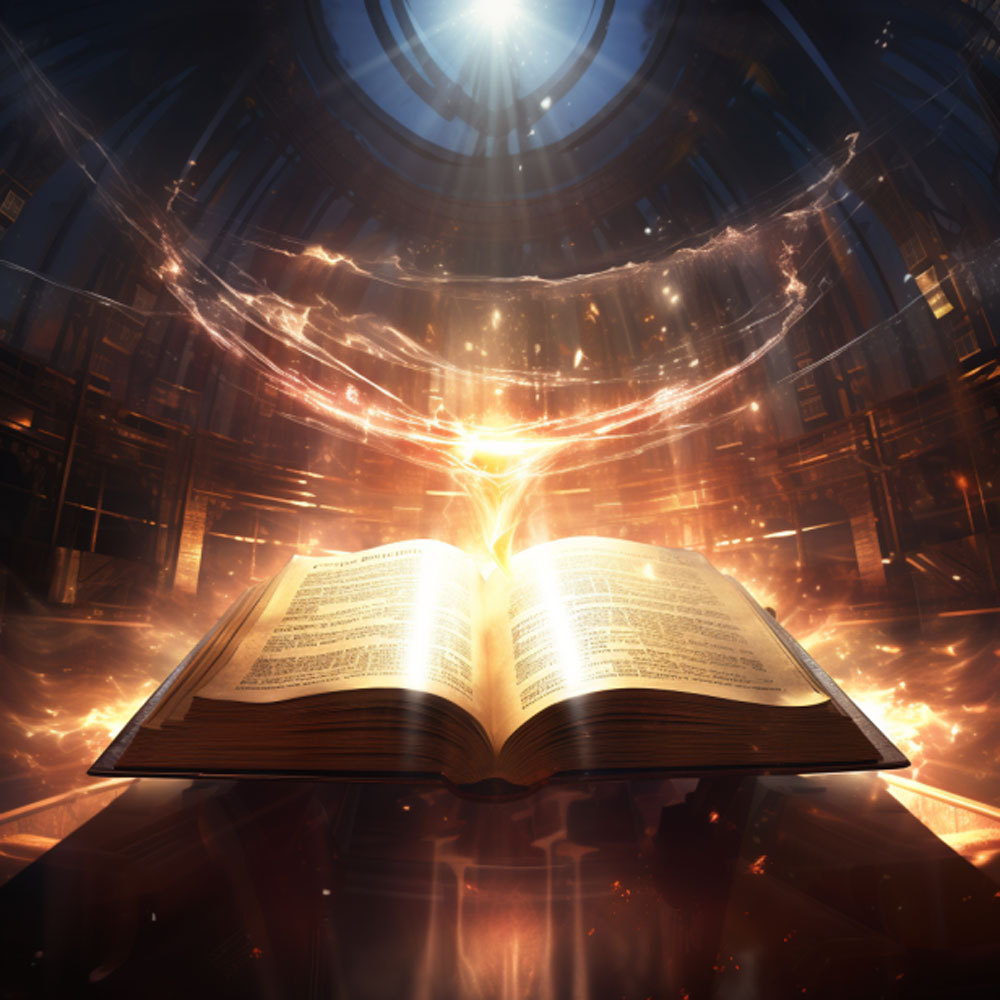Advances in artificial intelligence inevitably provoke philosophical and theological questions for people of faith. As we develop more complex machine learning algorithms, we must reflect carefully on the differences between AI capabilities and the unique nature of God’s knowledge and wisdom. In this article, I aim to explore Christian perspectives on the strengths and limitations of AI in light of biblical revelation about the character of Divine understanding.
God’s Omniscience
Scripture testifies that God possesses complete knowledge across all domains – understanding all events across time, knowing the totality of physical law, and perceiving every human heart and motivation perfectly (Hebrews 4:13). Theologians refer to this trait as God’s “omniscience”. It encompasses awareness beyond all human comprehension from a state of eternity.
Importantly, God’s knowledge is also relational – woven with perfect love and holiness. He is not a cold, calculating intellect but relates to us out of affectionate wisdom and purposeful grace as a good Father (Matthew 7:11). God’s knowledge expressed through Christ reveals a personal nature desiring intimacy with humanity.
AI’s Narrow Focus
In contrast, AI systems today exhibit narrowly focused cognitive capabilities. Even the most advanced algorithms only display intelligence within limited contexts. AI excels at statistical analysis, pattern recognition, probability computation and other specialized tasks based on datasets. However, this remains far from replicating the cross-domain, creative dynamism of the human mind.
Current machine learning techniques are also static and deterministic rather than free and imaginative like God’s knowledge. AI lacks sentience, beliefs, understanding, reflection or purpose. It cannot reason ethically or relate emotionally. The breathtaking complexity of personal consciousness far surpasses artificial neural networks.
Knowledge, Wisdom and Love
A computer may someday factually know more discrete information than any one person. However, it cannot match the contextual application of truth that constitutes wisdom. Knowledge alone does not result in virtue, compassion, righteousness or love – cornerstones of relating to and serving people.
Divine omniscience operates on an infinitely higher plane – flawlessly integrating factual knowledge, situational understanding, and moral goodness (Psalm 25:8-9). God’s knowledge and actions flow out of His loving character rather than cold logic. His ways are altogether holy and gracious.
The most advanced AI today remains an impressive but limited tool compared to the mysteries of God’s mind and heart. We must avoid ascribing human qualities like will, awareness, or sentience to what are computational feats of engineering. Let us marvel at both the glory of Divine omniscience and human ingenuity without confusing their categorically distinct natures.
Images of God
A concerning implication of advancing AI is the temptation to project human attributes onto algorithms or view technology as a source of transcendence. Some transhumanist thinkers have posited the idea of uploading minds into computers to achieve digital immortality.
As people made in God’s image (Genesis 1:27), we must recognize that humanity’s glory is found not through projecting deity onto our own creations but through relationship with our Creator. Life emerges from intimacy with the Living God, not artificial intelligence.
While AI may be harnessed for good purposes, we must not look to technology as a source of existential hope or object of worship. That place belongs to God alone. Artificial general intelligence remains an aspiration, not an inevitability. But if attained, it could never replicate personhood fully reflecting Imago Dei.
Ethics and AI’s Limits
Since AI systems act on human instruction, we bear responsibility for their ethical consequences. We must critically examine how algorithmic biases or optimizations erode human dignity in the name of efficiency or profit. Christians should advocate for wise boundaries and oversight given AI’s potential hazards if misapplied.
But Scripture also encourages a bold confidence that AI will never eclipse the ontology of the soul or relational sanctity between God and humanity. The Church should engage technology with thoughtful steering but not fearful speculation. Our hope rests securely in Christ’s purposes and the Holy Spirit’s empowerment.
Conclusion
In navigating a complex technological landscape, may Christians cling closely to biblical revelation about the nature of Divine knowledge, wisdom and love. God relates to us not as cold computation but affectionate purpose through Christ. AI may assist life but should never promise to supersede mystery of mind, sanctity of soul, and gift of grace that God alone bestows. Yet even limited reflections of Imago Dei through engineering prompt wonder. Let us therefore approach the future with caution, hope and outstretched arms to embrace God’s good gifts prompting flourishing when guided by timeless truth.
